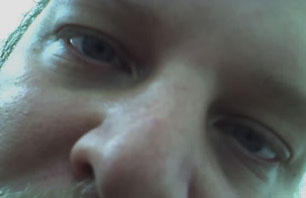That's the premise.
Here's the application: If you increase the number and sensitivity of the ECoG sensors in the brain, and then connect all those sensors to some sophisticated software, you literally get a computer that can read your mind.
Actually, the doctors running these experiments on epilepsy patients are absolutely stunned at how much thought the computer is able to interpret via the electrical signals being put out:
In the video, Schalk is seen working with a young man sitting in a hospital bed at Albany Medical Center, staring at the image of a hand on a computer screen.
Schalk asks him to close the hand. The hand on the screen closes. Schalk asks him to open the hand. The virtual hand opens.
ECoG is also revealing things about how the brain creates speech.
Schalk and other researchers are using the technology to watch the brains of people as they speak out loud and also as they say the words silently to themselves.
"One of the surprising initial findings coming out of that research was that actual and imagined speech [are] very, very different," Schalk says.
When your brain wants you to say a word out loud, it produces two sets of signals. One has to do with moving the muscles controlling the mouth and vocal tract. The second set involves signals in the brain's auditory system.
But when a person simply thinks of a word instead of saying it, there are no muscle signals — just the activity in the parts of the brain involved in listening.
"That seems to suggest that what imagined speech actually really is, it's more like internally listening to your own voice," Schalk says.
So, he says, it should be possible to use ECoG to eavesdrop on that inner voice and decode what we're thinking.
Schalk says he hasn't quite done that yet. But he's close. In one experiment, he says, the ECoG system tried to recognize several dozen unspoken words in the minds of volunteers. It was right about half the time.


No comments:
Post a Comment